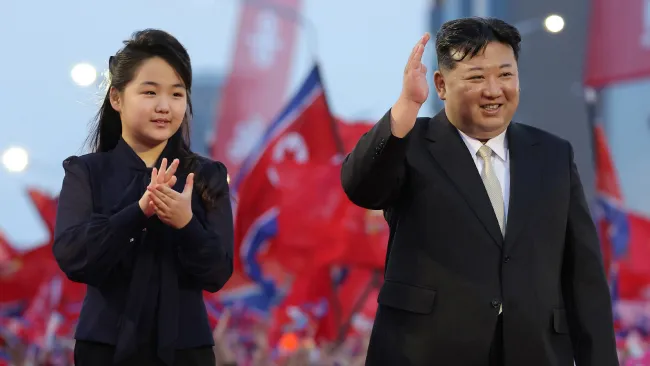A position created by South Korean President Yoon Suk-yeol to help raise the country's plummeting number birthrate has been filled.
You Hye-mi, an economics professor at Hanyang University and mother of two young children, has been tapped for the job, which Yoon announced in May.
South Korea has the lowest fertility rate in the world, with births expected per woman falling to 0.72 births from 0.78 last year, compared with neighboring Japan's 1.26 and China's 1.0. A fertility rate of 2.1 is considered necessary to replace a population.
South Korea has spent more than $200 billion over the past 18 years in its bid to reverse this trend, which Yoon has called a "demographic national emergency."
President Yoon's chief of staff Chung Jin-suk told the press that as a "working mom of elementary school twins herself," You "understands better than anyone the real-life hardship of juggling child care and career."
Compounding the demographic challenge, nearly one in five South Koreans were aged 65 or older last year. The East Asian country is on track to become a "super aged" society, which policymakers fear will constrain the Asian Tiger's economic growth.
"The population problem is the biggest challenge facing the Republic of Korea," Yoon said Thursday at an event in the western province of South Chungcheong, using South Korea's official name. "Rapid population decline will have a major impact on not only economic security, but also society as a whole, and threaten a sustainable future.
The president mentioned his plan to launch a new ministry tasked with demographic-related issues such as aging, birthrate, immigration, and housing. He pointed out his administration proposed amendments to the legislature on July 11 to expedite the process.
Yoon also highlighted local government efforts such as Gyeongsangbuk province and Gwangju city's moves to incentivize small- and medium-sized enterprises to shorten work weeks of parents with elementary students by one hour.
Analysts have observed changing cost of living looms large for many young Koreans choosing not to have children.
According to a survey by the Ministry of Land, Infrastructure, and Transport, housing prices in Seoul were over 15 times higher than the average household income in 2022.
Changing cultural attitudes among younger generations have also been pegged as a factor.
"Young Koreans balance lifestyle choices like hobbies, travel, and self-care with the desire and affordability of having children," Katherine Moon, a Wellesley College political science professor and senior fellow at the Brookings Institution, previously told Newsweek.
The South Korean embassy has been contacted for comment.
Disclaimer: The copyright of this article belongs to the original author. Reposting this article is solely for the purpose of information dissemination and does not constitute any investment advice. If there is any infringement, please contact us immediately. We will make corrections or deletions as necessary. Thank you.




